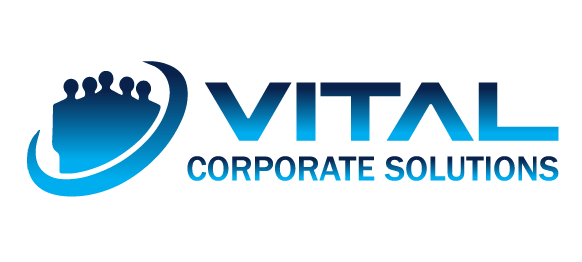What Is an Administrative Services Organization (ASO)?
Businesses may contract with an Administrative Services to handle specific administrative and human resource (HR) functions.
The employment connection and responsibilities are the key distinctions that set an apart from other employment services such as PEOs or Employee Leasing Organizations (ELOs). The client company continues to be the “employer of record” for tax and legal purposes when dealing with an Administrative Services This implies that the company maintains complete control over its workforce and all related legal obligations even when the ASO manages administrative duties.
ASOs assume administrative responsibilities without committing to a co-employment model, so the business maintains ownership of employee programs, its tax identification number, and its liability for compliance problems. In contrast, PEOs operate under a co-employment framework, while this autonomy does not exist.
Essential Services Served by an ASO
Payroll Support:
Administrative Services handle payroll processing, ensuring that employees are paid accurately and on time. They also manage tax deductions and filings, easing the burden on the company’s internal team.
Management of Incentives:
While the business is ultimately in charge of obtaining its benefit plans, an administrative organization can help with program administration and broker relations.They relieve the business of the responsibility of overseeing day-to-day operations by helping to ensure that employees receive the benefits to which they are legally entitled.
HR Administration:
ASO provide a comprehensive range of HR administrative support, from maintaining employee records to handling issues related to compliance and performance management.
Maintaining Regulatory
Compliance can be challenging for businesses, particularly in areas like employment law where laws and regulations are always changing. By decreasing the likelihood of penalties or legal problems, ASO aids in ensuring compliance.
Motivation for the Need for Administrative Services Organizations
An ASO’s ability to expand an organization’s HR department’s capabilities is what makes it so important. Businesses can reap numerous advantages by outsourcing these essential operations, such as increased productivity, decreased administrative workloads, and enhanced personnel management. Assisting companies in very complicated administrative and compliance domains such as healthcare might greatly benefit from collaborating with Administrative Services.
For small-to medium-sized clinics and healthcare facilities, balancing patient care with administrative duties is a common difficulty. By assigning administrative tasks like payroll, benefits administration, and regulatory compliance to a third party, healthcare practitioners can focus on delivering optimal patient care.
Comparing ASO with PEO: Recognizing the Differences
Professional Employer Organizations (PEOs) and ASOs both provide HR outsourcing services; the primary distinction between the two models is the degree of control and risk that each entails. decisive element for companies picking between an ASO and a PEO. Working under a co-employment paradigm, a PEO takes on the role of employer of record for certain aspects of employment, such as benefits and payroll.
The PEO and the company have certain legal obligations and liabilities because of this co-employment arrangement. The PEO manages benefits for employees, offers group health insurance, files taxes using its own federal identification number, and more.
On the other hand, when an ASO is used, the company is still in complete control of its personnel, including compliance and tax filing. Administrative Services provide administrative assistance; nevertheless, it bears no responsibility for the legal obligations or liabilities associated with employment.

When Should a Business Choose an ASO?
Benefits Administration:
Administrators assist in the management of benefit programs, but they neither supply nor finance the benefits. This means that the company must take on the responsibility of securing and funding benefits packages. However, ASOs can assist in interfacing with brokers and ensuring that the benefits are managed effectively.
HR Help:
Both ASOs and PEOs provide HR help, but Administrative Services offer a more hands-on administrative approach. They assist with day-to-day HR management duties like compliance and payroll, but higher-level strategic choices still need to be made by the company.
Pricing Considerations:
ASOs are often more economical than PEOs, especially for small firms, because the majority of ASO services charge a flat amount per person, which can be a more predictable and acceptable pricing structure than the percentage-based costs that some PEOs charge.
Risk management:
PEOs are a tempting option for businesses concerned about liability and compliance since they assume some of the financial and legal risks associated with hiring. This is one of their primary benefits. Administrative Services does not, however, allow
Conclusion: Is this ASO Right for your Business?

For Australian firms wishing to streamline their HR services without sacrificing control, an Administrative Services Organization (ASO) offers a personalized solution. Businesses can keep full legal responsibility for their employees while minimizing the administrative load by outsourcing services like compliance management, payroll, and benefits administration.
Small and medium-sized enterprises are especially drawn to administrative services because they seek to minimize expenses and stay away from the complications of a co-employment model. Even these administrative organizations might not provide the full range of services provided by PEOs, their affordability and adaptability make them a desirable substitute for businesses looking to expand without sacrificing control over their HR functions.
What Is an Administrative Services Organization (ASO)?
Businesses may contract with an Administrative Services to handle specific administrative and human resource (HR) functions.
The employment connection and responsibilities are the key distinctions that set an apart from other employment services such as PEOs or Employee Leasing Organizations (ELOs). The client company continues to be the “employer of record” for tax and legal purposes when dealing with an Administrative Services This implies that the company maintains complete control over its workforce and all related legal obligations even when the ASO manages administrative duties.
ASOs assume administrative responsibilities without committing to a co-employment model, so the business maintains ownership of employee programs, its tax identification number, and its liability for compliance problems. In contrast, PEOs operate under a co-employment framework, while this autonomy does not exist.
Essential Services Served by an ASO
Payroll Support:
Administrative Services handle payroll processing, ensuring that employees are paid accurately and on time. They also manage tax deductions and filings, easing the burden on the company’s internal team.
Management of Incentives:
While the business is ultimately in charge of obtaining its benefit plans, an administrative organization can help with program administration and broker relations.They relieve the business of the responsibility of overseeing day-to-day operations by helping to ensure that employees receive the benefits to which they are legally entitled.
HR Administration:
ASO provide a comprehensive range of HR administrative support, from maintaining employee records to handling issues related to compliance and performance management.
Maintaining Regulatory
Compliance can be challenging for businesses, particularly in areas like employment law where laws and regulations are always changing. By decreasing the likelihood of penalties or legal problems, ASO aids in ensuring compliance.
Motivation for the Need for Administrative Services Organizations
An ASO’s ability to expand an organization’s HR department’s capabilities is what makes it so important. Businesses can reap numerous advantages by outsourcing these essential operations, such as increased productivity, decreased administrative workloads, and enhanced personnel management. Assisting companies in very complicated administrative and compliance domains such as healthcare might greatly benefit from collaborating with Administrative Services.
For small-to medium-sized clinics and healthcare facilities, balancing patient care with administrative duties is a common difficulty. By assigning administrative tasks like payroll, benefits administration, and regulatory compliance to a third party, healthcare practitioners can focus on delivering optimal patient care.
Comparing ASO with PEO: Recognizing the Differences
Professional Employer Organizations (PEOs) and ASOs both provide HR outsourcing services; the primary distinction between the two models is the degree of control and risk that each entails. decisive element for companies picking between an ASO and a PEO. Working under a co-employment paradigm, a PEO takes on the role of employer of record for certain aspects of employment, such as benefits and payroll.
The PEO and the company have certain legal obligations and liabilities because of this co-employment arrangement. The PEO manages benefits for employees, offers group health insurance, files taxes using its own federal identification number, and more.
On the other hand, when an ASO is used, the company is still in complete control of its personnel, including compliance and tax filing. Administrative Services provide administrative assistance; nevertheless, it bears no responsibility for the legal obligations or liabilities associated with employment.

When Should a Business Choose an ASO?
Benefits Administration:
Administrators assist in the management of benefit programs, but they neither supply nor finance the benefits. This means that the company must take on the responsibility of securing and funding benefits packages. However, ASOs can assist in interfacing with brokers and ensuring that the benefits are managed effectively.
HR Help:
Both ASOs and PEOs provide HR help, but Administrative Services offer a more hands-on administrative approach. They assist with day-to-day HR management duties like compliance and payroll, but higher-level strategic choices still need to be made by the company.
Pricing Considerations:
ASOs are often more economical than PEOs, especially for small firms, because the majority of ASO services charge a flat amount per person, which can be a more predictable and acceptable pricing structure than the percentage-based costs that some PEOs charge.
Risk management:
PEOs are a tempting option for businesses concerned about liability and compliance since they assume some of the financial and legal risks associated with hiring. This is one of their primary benefits. Administrative Services does not, however, allow
Conclusion: Is this ASO Right for your Business?

For Australian firms wishing to streamline their HR services without sacrificing control, an Administrative Services Organization (ASO) offers a personalized solution. Businesses can keep full legal responsibility for their employees while minimizing the administrative load by outsourcing services like compliance management, payroll, and benefits administration.
Small and medium-sized enterprises are especially drawn to administrative services because they seek to minimize expenses and stay away from the complications of a co-employment model. Even these administrative organizations might not provide the full range of services provided by PEOs, their affordability and adaptability make them a desirable substitute for businesses looking to expand without sacrificing control over their HR functions.
Legal Research and Analysis Services Across Australia
Delivered by Vital Corporation Solutions—Precision. Insight. Strategy.
At Vital Corporation Solutions, we provide accurate, timely, and in-depth legal research and analysis services to support law firms, corporate legal teams, and government departments across Australia. Our mission is to equip legal professionals with clear, reliable legal information and strategic analysis to strengthen their cases, decisions, and compliance measures.
Whether you’re building a legal argument, responding to regulatory change, or preparing for litigation, we offer the legal research foundation you can trust.
What is Legal Research and Analysis?
Legal research and analysis is the process of identifying, interpreting, and applying laws, legal precedents, regulations, and scholarly commentary relevant to a legal issue. It involves:
- Searching case law, legislation, and legal commentary
- Interpreting and synthesising complex legal material
- Applying findings to specific cases or legal problems
- Drafting clear legal memoranda, opinions, and briefs
This process is critical to ensuring that every legal decision is grounded in current law and supported by authoritative sources.


Why Do You Need Legal Research and Analysis?
Legal research is the backbone of sound legal practice. Without accurate research and thoughtful analysis, decisions can be flawed, non-compliant, or vulnerable to challenge.
Here’s why this service is essential:
Build Stronger Legal Arguments
Our legal researchers ensure your case is supported by the most relevant statutes and precedents.
Stay Compliant with Changing Laws
We track evolving regulations and court rulings to help your firm or business stay legally compliant.
Make Informed Legal Decisions
With our insights, you can assess risk, understand the legal landscape, and act with confidence.
Save Time and Resources
Outsource complex legal research tasks and free up your team to focus on strategy and client engagement.
Benefits of Legal Research and Analysis Services
- Accuracy & Depth: Our team of legal experts provides precise, evidence-backed findings.
- Professional Reporting: Clear, concise, and actionable legal reports tailored to your audience.
- Extensive Legal Databases: Access to leading Australian and international legal resources.
- Faster Turnaround: Timely delivery without compromising on detail or quality.
- Confidentiality & Security: Your data and documents are handled with the highest legal and ethical standards.
Why Choose Vital Corporation Solutions?
Australia-Wide Coverage
We proudly support clients in every state and territory across Australia.
Specialized Legal Expertise
Our team includes seasoned legal researchers with expertise across multiple legal domains.
Customized Solutions
Whether it’s a one-off issue or ongoing legal support, we tailor our approach to meet your unique needs
Trusted by Professionals
Law firms, in-house counsel, and government bodies rely on our services for accurate legal intelligence.
Our Legal Research and Analysis Process
We believe in clear communication, timely delivery, and lasting client relationships.
Our Legal Research and Analysis Process
We follow a detailed, proven process to ensure precision and reliability in every research project:
Client Consultation & Scope Definition
We begin by understanding your legal issue, jurisdiction, and the desired outcome.
Research Strategy Development
Our team designs a custom research plan, selecting the most relevant sources and databases.
Legal Research Execution
We identify and analyze statutes, case law, and legal literature across relevant jurisdictions.
In-Depth Legal Analysis
We interpret the findings, apply legal reasoning, and assess implications specific to your matter.
Reporting & Documentation
You receive a detailed, clearly written report or legal memorandum, fully referenced and ready for action.
Follow-Up & Clarifications
We offer ongoing support to address questions or update research as new information becomes available.
Get Reliable Legal Research from Experts You Can Trust
When the outcome matters, make sure your legal decisions are based on solid research. Let Vital Corporation Solutions be your partner in Legal Research and Analysis—bringing clarity, precision, and strategic insight to every matter.
Contact us today to speak with our team or request a free consultation.
Serving clients across Australia with trusted legal research services.
What Is an Administrative Services Organization (ASO)?
Businesses may contract with an Administrative Services to handle specific administrative and human resource (HR) functions.
The employment connection and responsibilities are the key distinctions that set an apart from other employment services such as PEOs or Employee Leasing Organizations (ELOs). The client company continues to be the “employer of record” for tax and legal purposes when dealing with an Administrative Services This implies that the company maintains complete control over its workforce and all related legal obligations even when the ASO manages administrative duties.
ASOs assume administrative responsibilities without committing to a co-employment model, so the business maintains ownership of employee programs, its tax identification number, and its liability for compliance problems. In contrast, PEOs operate under a co-employment framework, while this autonomy does not exist.
Essential Services Served by an ASO
Payroll Support:
Administrative Services handle payroll processing, ensuring that employees are paid accurately and on time. They also manage tax deductions and filings, easing the burden on the company’s internal team.
Management of Incentives:
While the business is ultimately in charge of obtaining its benefit plans, an administrative organization can help with program administration and broker relations.They relieve the business of the responsibility of overseeing day-to-day operations by helping to ensure that employees receive the benefits to which they are legally entitled.
HR Administration:
ASO provide a comprehensive range of HR administrative support, from maintaining employee records to handling issues related to compliance and performance management.
Maintaining Regulatory
Compliance can be challenging for businesses, particularly in areas like employment law where laws and regulations are always changing. By decreasing the likelihood of penalties or legal problems, ASO aids in ensuring compliance.
Motivation for the Need for Administrative Services Organizations
An ASO’s ability to expand an organization’s HR department’s capabilities is what makes it so important. Businesses can reap numerous advantages by outsourcing these essential operations, such as increased productivity, decreased administrative workloads, and enhanced personnel management. Assisting companies in very complicated administrative and compliance domains such as healthcare might greatly benefit from collaborating with Administrative Services.
For small-to medium-sized clinics and healthcare facilities, balancing patient care with administrative duties is a common difficulty. By assigning administrative tasks like payroll, benefits administration, and regulatory compliance to a third party, healthcare practitioners can focus on delivering optimal patient care.
Comparing ASO with PEO: Recognizing the Differences
Professional Employer Organizations (PEOs) and ASOs both provide HR outsourcing services; the primary distinction between the two models is the degree of control and risk that each entails. decisive element for companies picking between an ASO and a PEO. Working under a co-employment paradigm, a PEO takes on the role of employer of record for certain aspects of employment, such as benefits and payroll.
The PEO and the company have certain legal obligations and liabilities because of this co-employment arrangement. The PEO manages benefits for employees, offers group health insurance, files taxes using its own federal identification number, and more.
On the other hand, when an ASO is used, the company is still in complete control of its personnel, including compliance and tax filing. Administrative Services provide administrative assistance; nevertheless, it bears no responsibility for the legal obligations or liabilities associated with employment.

When Should a Business Choose an ASO?
Benefits Administration:
Administrators assist in the management of benefit programs, but they neither supply nor finance the benefits. This means that the company must take on the responsibility of securing and funding benefits packages. However, ASOs can assist in interfacing with brokers and ensuring that the benefits are managed effectively.
HR Help:
Both ASOs and PEOs provide HR help, but Administrative Services offer a more hands-on administrative approach. They assist with day-to-day HR management duties like compliance and payroll, but higher-level strategic choices still need to be made by the company.
Pricing Considerations:
ASOs are often more economical than PEOs, especially for small firms, because the majority of ASO services charge a flat amount per person, which can be a more predictable and acceptable pricing structure than the percentage-based costs that some PEOs charge.
Risk management:
PEOs are a tempting option for businesses concerned about liability and compliance since they assume some of the financial and legal risks associated with hiring. This is one of their primary benefits. Administrative Services does not, however, allow
Conclusion: Is this ASO Right for your Business?

For Australian firms wishing to streamline their HR services without sacrificing control, an Administrative Services Organization (ASO) offers a personalized solution. Businesses can keep full legal responsibility for their employees while minimizing the administrative load by outsourcing services like compliance management, payroll, and benefits administration.
Small and medium-sized enterprises are especially drawn to administrative services because they seek to minimize expenses and stay away from the complications of a co-employment model. Even these administrative organizations might not provide the full range of services provided by PEOs, their affordability and adaptability make them a desirable substitute for businesses looking to expand without sacrificing control over their HR functions.

